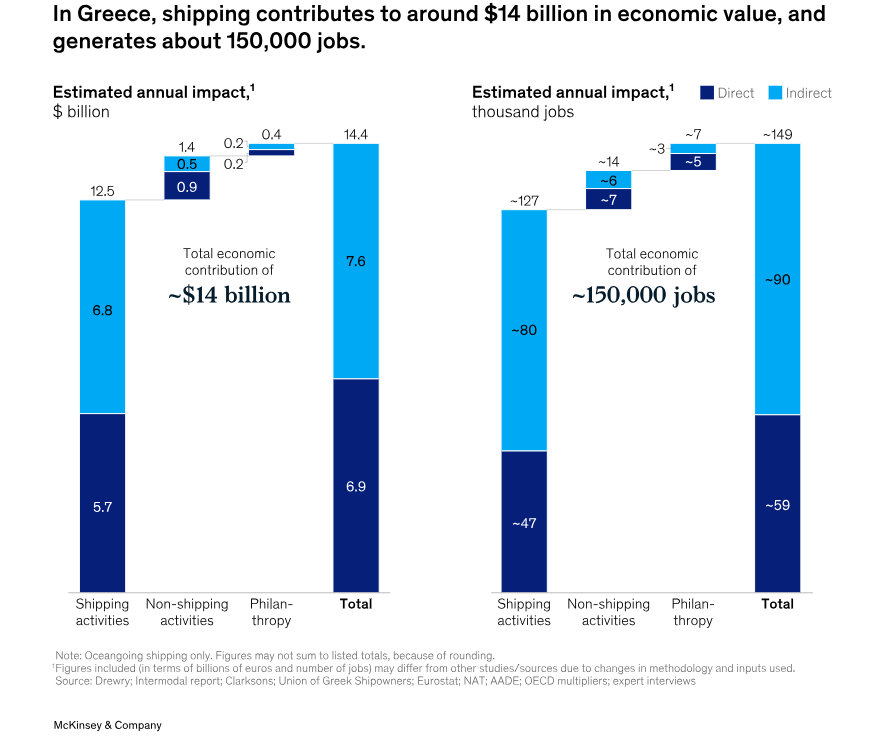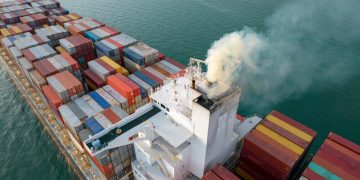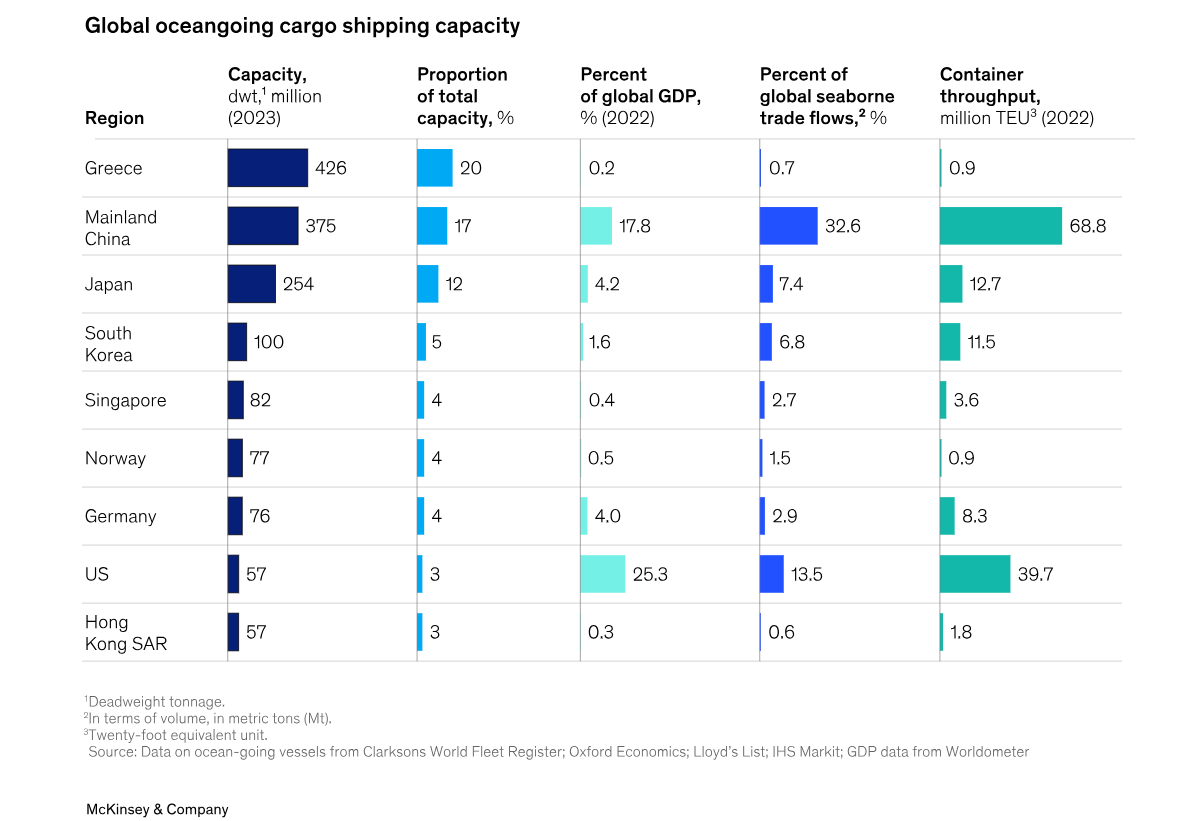A McKinsey & Company report highlighted how Greek shipping is supporting 60,000 jobs in Greece and employing more than 200,000 seafarers worldwide.
Over the past decade, Greece has consistently ranked among the world’s top maritime nations, holding a leading position in shipping capacity based on deadweight tonnage.
As explained by McKinsey & Company, Greek shipping generates around $40 billion in annual gross revenues, with over 20 Greek shipping companies listed on foreign capital markets, collectively valued at more than $9 billion. Additionally, more than 200,000 foreign seafarers are employed on Greek vessels, supported by over 750 shipmanagement companies, including about 100 managing fleets of more than ten vessels.
Moreover, Greek shipping is particularly dominant in key sectors. Greece controls the world’s largest fleets of tankers and liquefied natural gas vessels, as well as the second-largest fleets of dry bulk and liquefied petroleum gas carriers. Greek tankers transport approximately 40 percent of the crude oil imported to Europe by sea.
McKinsey estimates that the Greek shipping sector contributes roughly $14 billion to the domestic economy and supports around 150,000 jobs, both directly (seafarers, shipmanagement) and indirectly (across various shipping-related sectors like hospitality, real estate, and media).
The sector’s impact is also reflected in its high-paying jobs and the vibrant shipping cluster in Greece, which includes shipyards, brokerages, law firms, banks, and technology providers.
 Given these contributions to the local economy and global trade, it’s worth asking whether there are specific characteristics, strategies, or choices that have allowed this maritime sector to thrive. In conversations with Greek shipping experts, several common factors have been identified that are foundational to Greece’s maritime achievements.
Given these contributions to the local economy and global trade, it’s worth asking whether there are specific characteristics, strategies, or choices that have allowed this maritime sector to thrive. In conversations with Greek shipping experts, several common factors have been identified that are foundational to Greece’s maritime achievements.
Those include:
- A century-old maritime track record.
- Collaborative and coordinated community.
- Agile and adaptive business models.
- Entrepreneurship and investments.
- Speed of decision making.
Concluding, McKinsey points out that to maintain its global shipping leadership, Greece should focus on expanding foreign vessel management, increasing shipyard capacity, and embracing maritime technology and digitization. Pursuing decarbonization through new technologies and strategies also presents growth opportunities.



































































